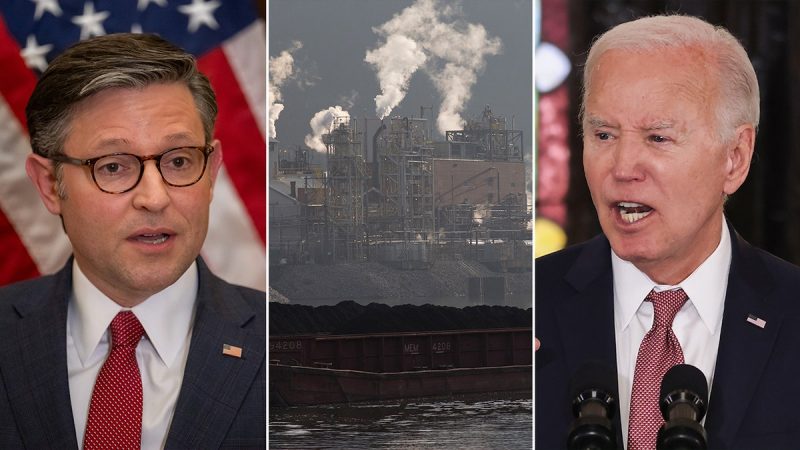Climate groups across the nation are urging Speaker Johnson to take a stand against President Biden’s Green New Deal agenda. They argue that the proposed policies, while well-intentioned, may not be the most effective or efficient way to combat climate change.
The Green New Deal, a comprehensive plan to address climate change and economic inequality, has been a cornerstone of President Biden’s environmental policy. It aims to transition the United States to 100% clean, renewable, and zero-emission energy sources within a decade. However, several climate groups believe that this ambitious plan may not be feasible or beneficial in the long run.
One of the main concerns raised by these groups is the potential economic impact of the Green New Deal. They argue that the rapid transition to renewable energy could lead to job losses in traditional energy sectors, such as coal and oil. While the Green New Deal promises to create new jobs in renewable energy, these groups question whether these jobs will be enough to offset the losses in other sectors.
Another concern is the potential impact on energy prices. Transitioning to renewable energy could lead to higher energy costs in the short term, which could disproportionately affect low-income households. These groups argue that any climate policy should take into account the potential economic impact on the most vulnerable populations.
Furthermore, these climate groups question the feasibility of the Green New Deal’s ambitious timeline. They argue that transitioning to 100% renewable energy within a decade may not be technically or logistically possible. They suggest that a more gradual transition may be more realistic and less disruptive.
In addition to these concerns, some climate groups argue that the Green New Deal does not go far enough in addressing the root causes of climate change. They believe that a more holistic approach is needed, one that addresses not only greenhouse gas emissions but also other environmental issues such as deforestation and biodiversity loss.
These groups are urging Speaker Johnson to take these concerns into account and push back against the Green New Deal. They believe that a more balanced and nuanced approach to climate policy is needed, one that takes into account the economic, social, and technical challenges of transitioning to a low-carbon economy.
In response to these concerns, proponents of the Green New Deal argue that the plan is both necessary and feasible. They point to the urgent need to reduce greenhouse gas emissions and argue that a rapid transition to renewable energy is the most effective way to achieve this. They also argue that the Green New Deal will create jobs and stimulate the economy, offsetting any potential job losses in traditional energy sectors.
Despite these differing views, all parties agree on the urgent need to address climate change. The debate over the Green New Deal highlights the complexity of this issue and the need for thoughtful, informed policy decisions. As Speaker Johnson considers his position on this issue, he will need to weigh these competing perspectives and make a decision that best serves the interests of the American people and the planet.

